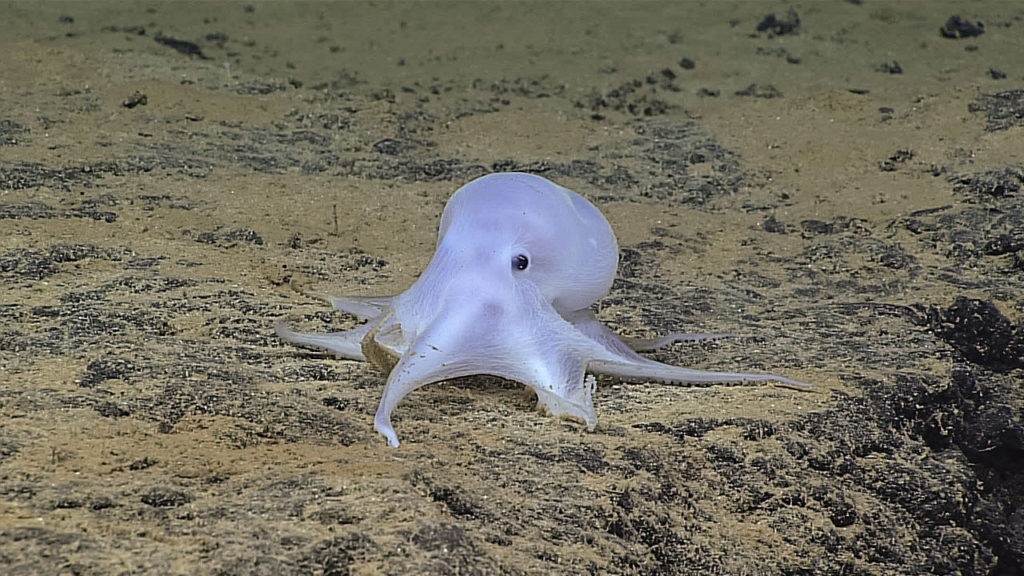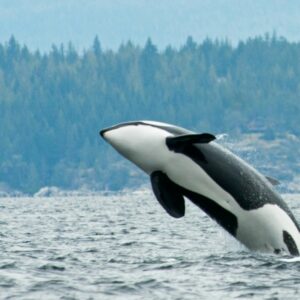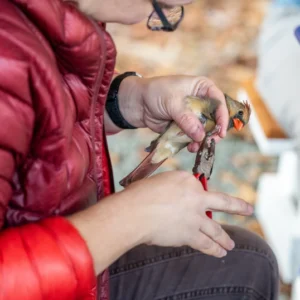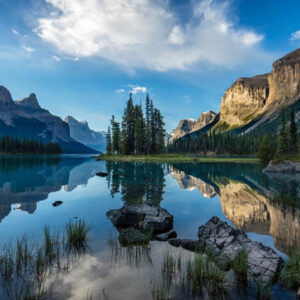Deepsea: Ghost Octopus
Several species of octopus make their home in the Deepsea Oasis, a deep-sea area off the coast of British Columbia that Nature Canada is asking to become a Marine Protected Area. One of the Pacific’s most little-known species is the Ghost Octopus – so named because its body lacks pigment.
Is the Ghost Octopus as friendly as Casper? Read on to find out, and please add your name to our petition to permanently protect the octopuses of the Pacific Deepsea Oasis!
Vital Signs
Common name: Ghost Octopus
Range: Discovered near the Hawaiian archipelago at a depth of 2.6 km
Life Span: unknown
Size: 12 cm long

Courtesy NOAA Office of Ocean Exploration and Research
Facts
- Nicknamed “Casper” for its friendly ghost like appearance
- Discovered swimming 2.6 km deep of the Hawaiian archipelago, deeper than any octopod has ever been seen.
- Its pale appearance is due to the fact that it lacks any pigment.
- Gelatinous consistency due to the difficulty of finding food and building muscles in the deep-sea.
- To reproduce, it will attach a clutch of about 30 quarter-sized eggs to the stalk of a dead sponge. It will then wraps its whole body around it, staying for several years. During this period it will not feed, wasting away until the eggs hatch and the octopus dies.
On February 27, 2016, a U.S. rover called Deep Discoverer was surveying the seabed north of the Hawaiian Archipelago when it came upon an odd octopus that none of the scientists onboard could identify.
Now known as the ghost octopus, or “Casper” to some in honour of its resemblance to the friendly cartoon ghost, this species is so new it has yet to be identified with a common name. Its discovery is notable for several reasons. It belongs to the group of incirrate octopuses, and it is the deepest member of this group to have been discovered.
What can you do to help the Ghost Octopus?
The Ghost Octopus lays its eggs on dead sponges that grow on the seabed. Unfortunately, these areas are very slow growing and a potential target for deep-sea mining. Deep sea destruction of these fragile reefs could jeopardize the species’ ability to reproduce.
To maintain the health of the oceans, and animals like octopuses, it’s important we set aside large areas of the ocean for conservation and research. Sign our petition asking the federal government to make the Deepsea Oasis a Marine Protected Area.



